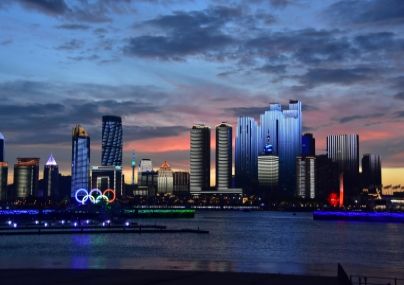2021年伊始,中国似乎呈现出了一个前所未有的“吹哨”新环境:2月初,德勤北京办公室的一名员工以群发邮件的方式,列举了德勤在多家上市公司的审计过程中存在 “放飞机”(即审计程序未执行)行为;近日,中国人寿嫩江支公司前员工也实名举报公司造假。
实际上,中国近期吹哨事件的频发暗合了全球潮流。英国金融时报调查显示,去年金融服务业中举报不规范行为的案例增加了35%。在中国饱受“吹哨”之苦的德勤曾警告道:在疫情期间似乎出现了一种新的“举报环境”。德勤将原因归结于人们更加关注职场健康、失业人数创纪录,以及职员在家工作导致的合规问题。
在这种新的“道德风潮”下,吹哨人本身却需要付出极大勇气,甚至代价。除职业发展、法律风险之外,保护的缺失甚至还可能造成吹哨人隐私、声誉及人身安全方面的隐患。因此,吹哨人保护制度的建立可谓重中之重。
中国现状

德和衡律师事务所,高级合伙人
Beijing DHH Law Firm, senior partner
在2014年经合组织调查的32个受访国家中,84%的国家已经颁布了吹哨人保护法或与保护吹哨人及防止公共部门对吹哨人实行报复的相关法律,其中包括日本、韩国等亚洲国家,而美国最早在1989年便已将《吹哨人保护法》写入联邦法律。
谈及中国现状,北京德和衡(上海)律师事务所高级合伙人黄贤文律师对ALB指出,我国目前关于吹哨人的制度只是散乱地出现在各行业的规范性文件当中,就像是“没长牙齿”,缺乏保护吹哨人的绝对力量。
他具体例举了几部相关领域重点法规,例如证监会于2008年曾发布《企业内部控制基本规范》,保监会在2015年制定了《中国保监会关于进一步做好保险业防范和处置非法集资工作的通知》,国务院在2019年也曾出台《国务院关于加强和规范事中事后监管的指导意见》等文件,都“旨在为吹哨人做好保障”。
然而黄律师认为,如此现状 “只起到了一个宣导性的作用,并未对吹哨者的具体保护措施作出明确规定,我国法律制度无论在保护范围还是力度上均亟须体系化的完善”。 可以看出,中国的吹哨人保护制度正在逐步优化,从法律层面建立一套完整且系统的制度,才能够为社会搭建一条有效且安全的信息披露渠道。
合规建议
聚焦企业合规建设,黄律师表示:“对于企业而言,必须建立通畅的内部举报制度和渠道,配置专业的人员和设施,制订相应的管理制度,引导内部人在发现问题时,第一时间通过内部举报程序向内部管理人员举报。通过内部举报能够使管理层及时、有效地发现并解决问题,并避免因问题公开而使公司遭受不利影响。”
合规的效果取决于制度,更取决于人。按照金融时报的说法,好的内部举报制度能够鼓励“每一名员工成为一个早期预警机制”。
“要让全体员工参与到公司的合规管理中来,鼓励各个从事不同岗位的员工从自身岗位上找工作漏洞,提出合理建议,为完善内控管理提供重要依据。”黄律师向ALB补充道,“合规不仅仅关系到个人工作的规范与效率,更关系到企业利益与形象,进而影响到行业的健康发展。”
Whistleblower cases show need for robust framework at public, private levels
Since the start of this year, China has seen a number of high-profile whistleblower cases. These included an employee at Deloitte Beijing, who launched a mass email listing irregularities in the audit process of clients, some of which are listed on the NYSE and HKEX, and a former employee of China Life Insurance Company who reported massive falsification of data.
But China is not alone. According to the Financial Times, whistleblower cases in the financial services rose by 35 percent last year. Deloitte itself warned of a new "whistleblower environment" caused by the pandemic, which arises from heightened workplace health concerns, record unemployment, and compliance issues of working from home.
In this new environment, whistleblowers need to be courageous, as they may be a heavy price to pay. In addition to professional and legal risks, whistleblowers also potentially put their privacy, reputation or safety on the line. As a result, having a robust framework to protect whistleblowers is the need of the hour.
LEGISLATION NECESSARY
According to an OECD Survey, 84 percent of countries have enacted a dedicated whistleblower protection law or legal provisions related specifically to protecting the reporting or prevention of retaliation against whistleblowers in the public sector. This includes some Asian countries such as Japan and South Korea. The United States was the first nation to have a whistleblower protection act written into federal law in 1989.
However, in China, whistleblower protection remains much less formalized. Huang Xianwen, senior partner of Beijing DHH (Shanghai) Law Firm, tells ALB while certain government departments may have issued notices highlighting the need, it is not currently legally enforceable, leaving whistleblowers open to retaliation.
Huang says that the notices “only provide awareness, but do not make clear the specific protection measures for whistleblowers,” and while the situation is evolving, the country is still yet to established a comprehensive framework.
AT THE COMPANY LEVEL
That said, companies themselves can do more to protect whistleblowers. “It is necessary to establish a smooth internal reporting system, deploy professional personnel and facilities as well as formulate corresponding management systems,” says Huang. “In order to solve the problems timely and effectively, we could guide insiders to disclosing wrongdoing through internal procedures in the first time."
The effectiveness of compliance depends not just on the system, but also on the people. According to the Financial Times, a good internal whistleblower system encourages every employee to be “an early warning signal.”
“It is important to involve all employees in the company's compliance management, and encourage them to find work loopholes to make reasonable suggestions," Huang says, adding that "compliance is not only related to the regulation and efficiency of individuals, but also to the interests and image of the company, which affects the healthy development of the whole industry in turn."
To contact the editorial team, please email ALBEditor@thomsonreuters.com.


